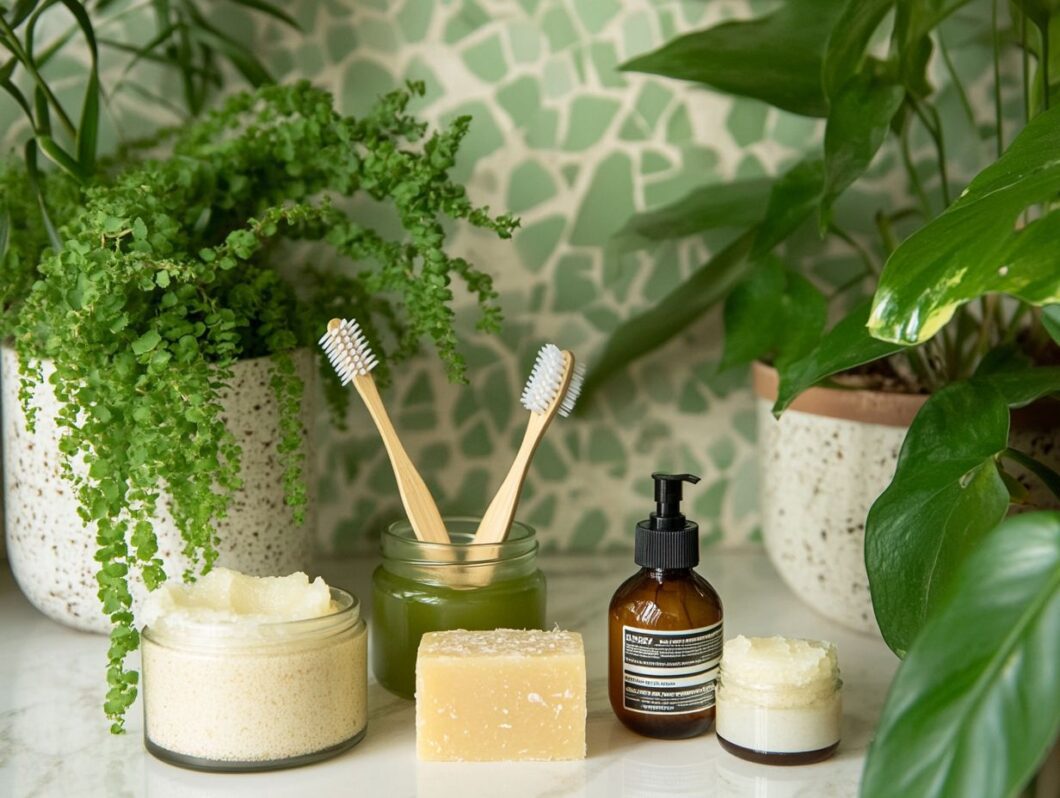In recent years, I have observed a significant transformation within the beauty industry, as an increasing number of beauty enthusiasts embrace the zero-waste movement. This shift is indicative of a growing awareness surrounding environmental issues and personal well-being. I find it essential to explore what zero-waste beauty truly entails, along with the compelling reasons driving this change. It is also important to acknowledge the challenges consumers face and to provide practical tips for integrating sustainable practices into their beauty routines. This journey towards a future of beauty focused on eco-friendliness and health is one I am committed to promoting.
Key Takeaways:
The Zero-Waste Beauty Movement
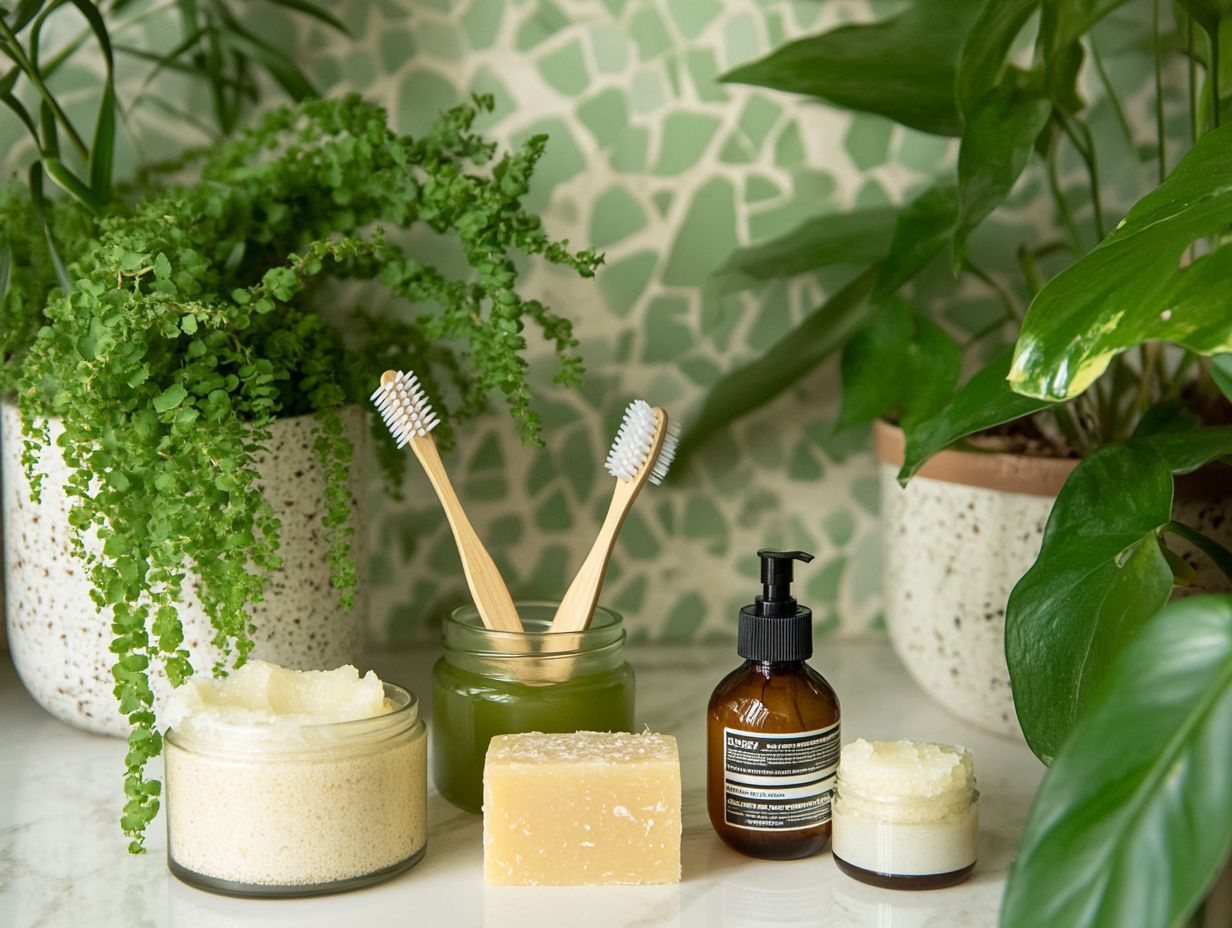
The Zero-Waste Beauty Movement signifies a pivotal transformation within the beauty industry, advocating for eco-conscious choices that significantly reduce environmental impact through sustainable practices, including energy-efficient tools and waste management strategies. This movement encourages the use of biodegradable hair products, cruelty-free certifications, and organic hair treatments, all aimed at minimizing waste in beauty routines. For context, the Environmental Protection Agency (EPA) offers an in-depth analysis on how communities are defining zero waste.
In Delray Beach, Florida, Rov Hair Salon is at the forefront of this initiative, providing a range of luxurious hair care options, including vegan hair products and ammonia-free hair dye, while underscoring the importance of sustainable sourcing and ethical labor practices.
By adopting a zero-waste approach, I can contribute to a healthier planet while enjoying high-quality hair care solutions.
What is Zero-Waste Beauty?
Zero-waste beauty is a philosophy I strongly adhere to, as it encourages the reduction of waste through the use of environmentally friendly and sustainable products and practices.
This approach underscores the importance of mindful consumption, prompting me to consider the lifecycle of beauty products, including plant-based hair care and biodegradable hair products, and their impact on the planet. Regarding hair care, I advocate for the use of biodegradable hair products that decompose naturally without causing harm to the environment.
Additionally, I prioritize cruelty-free certifications, ensuring that these products are not tested on animals and align with ethical standards. By incorporating organic ingredients, I can minimize exposure to harmful chemicals while supporting sustainable agriculture.
Embracing these practices allows me to enjoy beautiful hair while remaining committed to environmental stewardship.
Reasons for the Shift to Zero-Waste
The transition to zero-waste beauty is motivated by a growing awareness of environmental issues and the associated personal health benefits. This shift encourages both consumers and industry professionals to reevaluate and improve their beauty routines.
Environmental Impact
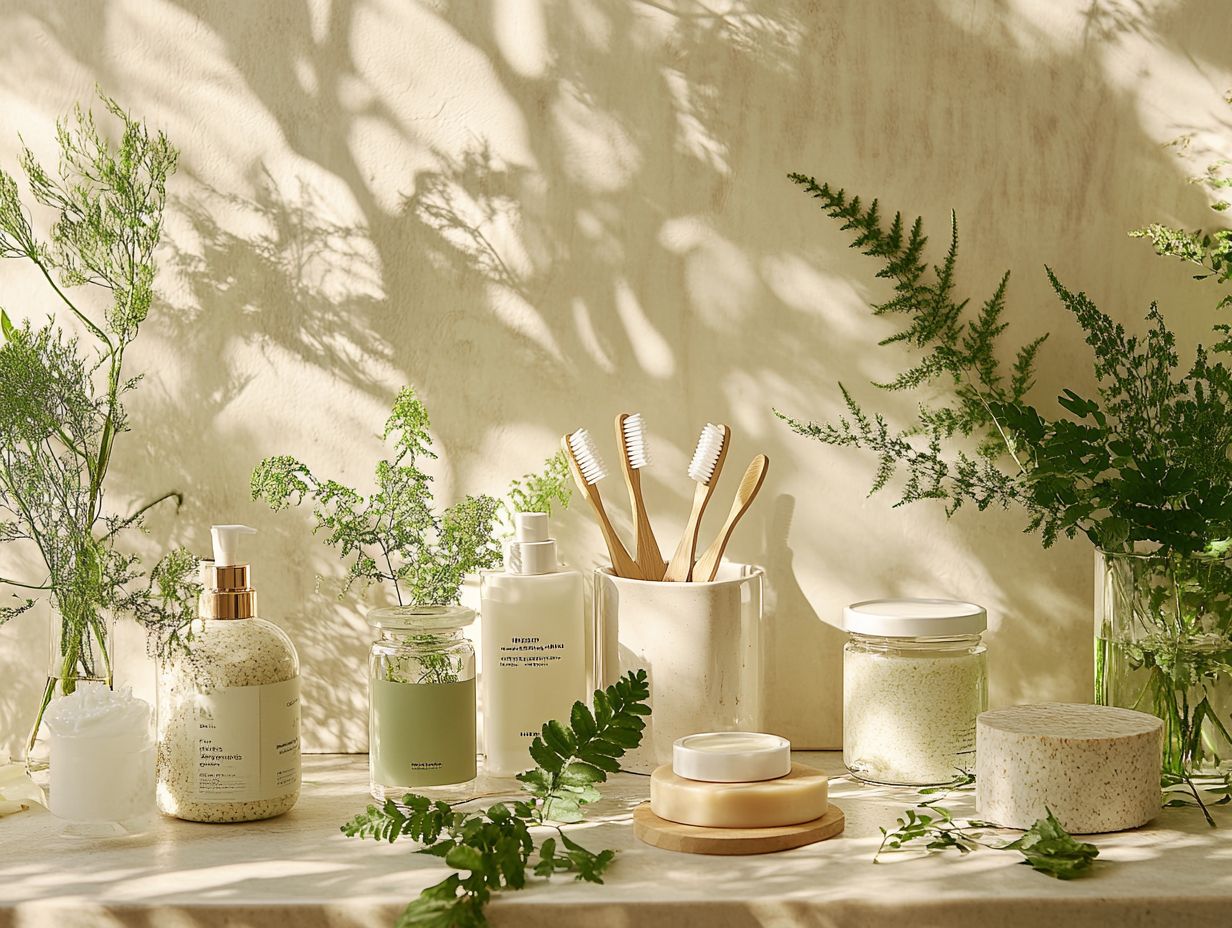
The environmental impact of the beauty industry is considerable, as traditional practices contribute to significant waste and pollution. Zero-waste products aim to address these pressing concerns.
This issue largely arises from the extensive use of plastic packaging, which inevitably ends up in landfills and oceans, causing long-lasting damage to ecosystems. Additionally, many conventional cosmetics contain harmful chemicals that can leach into waterways, further exacerbating pollution and harming aquatic life.
By adopting zero-waste beauty products, I can address these critical issues while promoting a sustainable approach that benefits both consumers and the planet. Choosing eco-friendly and biodegradable options allows individuals to significantly reduce their ecological footprint and support brands that prioritize environmental stewardship.
Ultimately, embracing sustainable practices in beauty routines not only fosters a cleaner environment but also provides a meaningful way to contribute to the health of our planet. For those interested in a comprehensive overview of how the beauty industry can move towards sustainability, this analysis by ScienceDirect explores the circular economy within the cosmetic sector extensively.
Personal Health Benefits
Adopting a zero-waste beauty routine not only benefits the environment but also provides me with numerous personal health advantages through the use of natural ingredients and cruelty-free products.
By selecting products that are free from harmful chemicals often found in conventional beauty items, I can enhance my skin health and overall wellness. These sustainable beauty choices frequently include organic hair treatments that nourish my scalp and hair without the risk of irritating synthetic additives.
Choosing products with cruelty-free certifications ensures that no animals were harmed in their formulation, aligning my personal care with ethical practices.
Embracing this approach elevates my beauty regimen while supporting a lifestyle that prioritizes both personal and planetary health, ultimately leading to a more fulfilling self-care experience.
Challenges and Solutions
While the benefits of adopting a zero-waste beauty routine are clear, I recognize that there are several challenges individuals may encounter when transitioning to sustainable beauty practices.
Obstacles to Going Zero-Waste
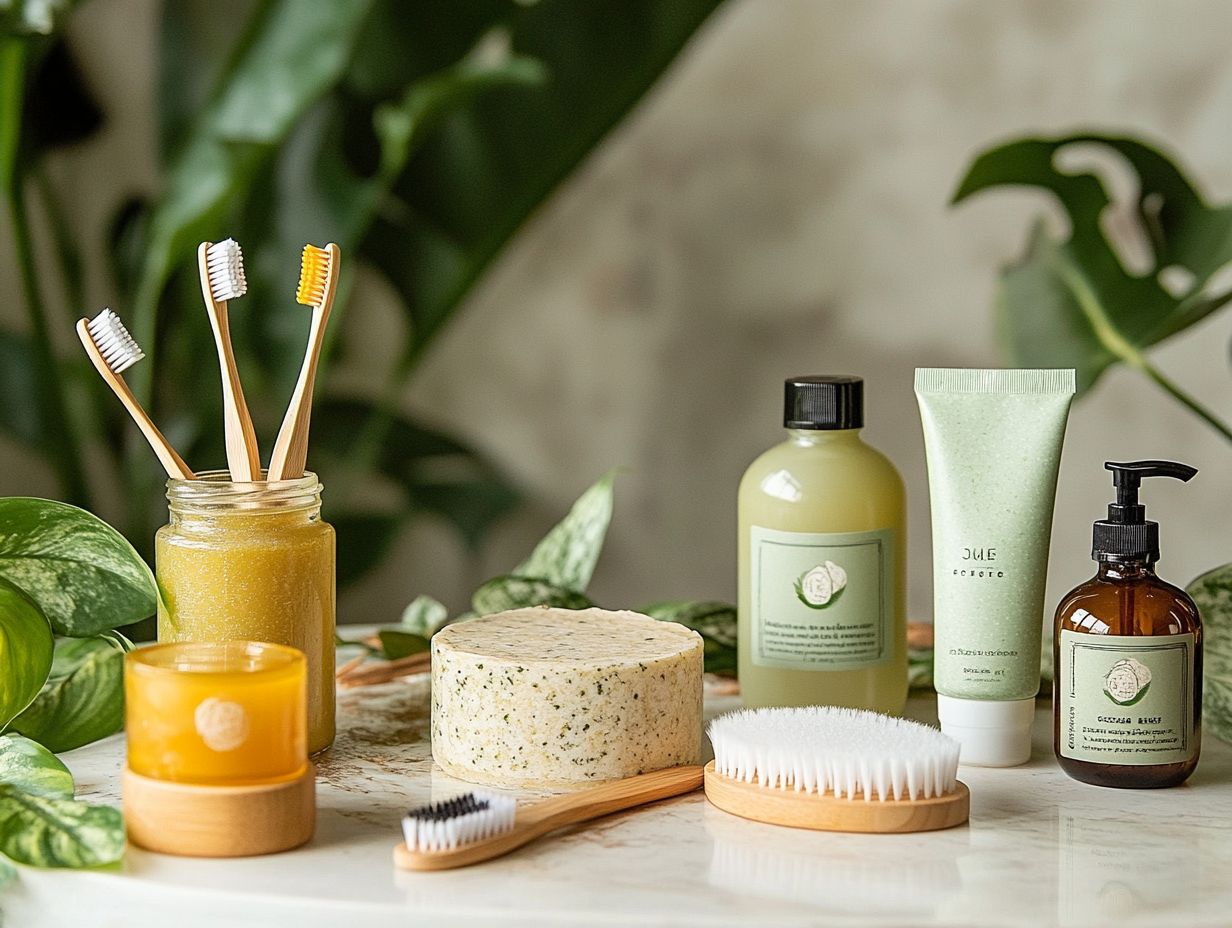
I recognize that there are significant obstacles to adopting a zero-waste approach in the beauty industry, including the limited availability of sustainable products, consumer skepticism, and the deeply ingrained habits associated with conventional beauty routines.
These challenges often present themselves in various forms, such as the misconception that eco-friendly products are less effective or prohibitively expensive compared to mainstream options. I understand that consumers may find it difficult to locate reliable brands that prioritize transparency and utilize ethically sourced ingredients, which complicates their transition to more sustainable choices.
Additionally, the perception that sustainable beauty is a niche market can deter many individuals from exploring viable alternatives. Misinformation regarding packaging and the effectiveness of natural ingredients can create confusion, leading to hesitation in abandoning familiar, wasteful routines.
This combination of uncertainty and a lack of accessible information can impede the collective movement toward waste reduction within the beauty sector. As highlighted in a recent analysis by McKinsey, many consumers express a willingness to support sustainable products, yet this does not always translate into purchasing behavior due to these barriers ( McKinsey, 2023).
Tips for Overcoming Challenges
To successfully transition to a zero-waste beauty routine, I can adopt several practical tips that make the process not only easier but also more enjoyable.
This journey begins by exploring the numerous brands committed to sustainable beauty, where I can discover eco-friendly hair care and skincare products that utilize minimal packaging and clean ingredients.
Creating DIY recipes at home allows for customization while also reducing my reliance on single-use plastics. For instance, using natural ingredients like coconut oil for moisturizing or baking soda for exfoliating can yield effective results without harming the planet.
Additionally, cultivating eco-friendly habits, such as carrying reusable containers for products and opting for bar soaps instead of liquid cleansers, can significantly decrease waste and contribute to sustainable beauty practices. This approach enables me to develop a conscious beauty routine that prioritizes the health of the Earth.
How to Adopt a Zero-Waste Beauty Routine
Adopting a zero-waste beauty routine is a rewarding endeavor that begins with straightforward swaps and the integration of sustainable practices into my daily life.
Simple Swaps and DIY Recipes
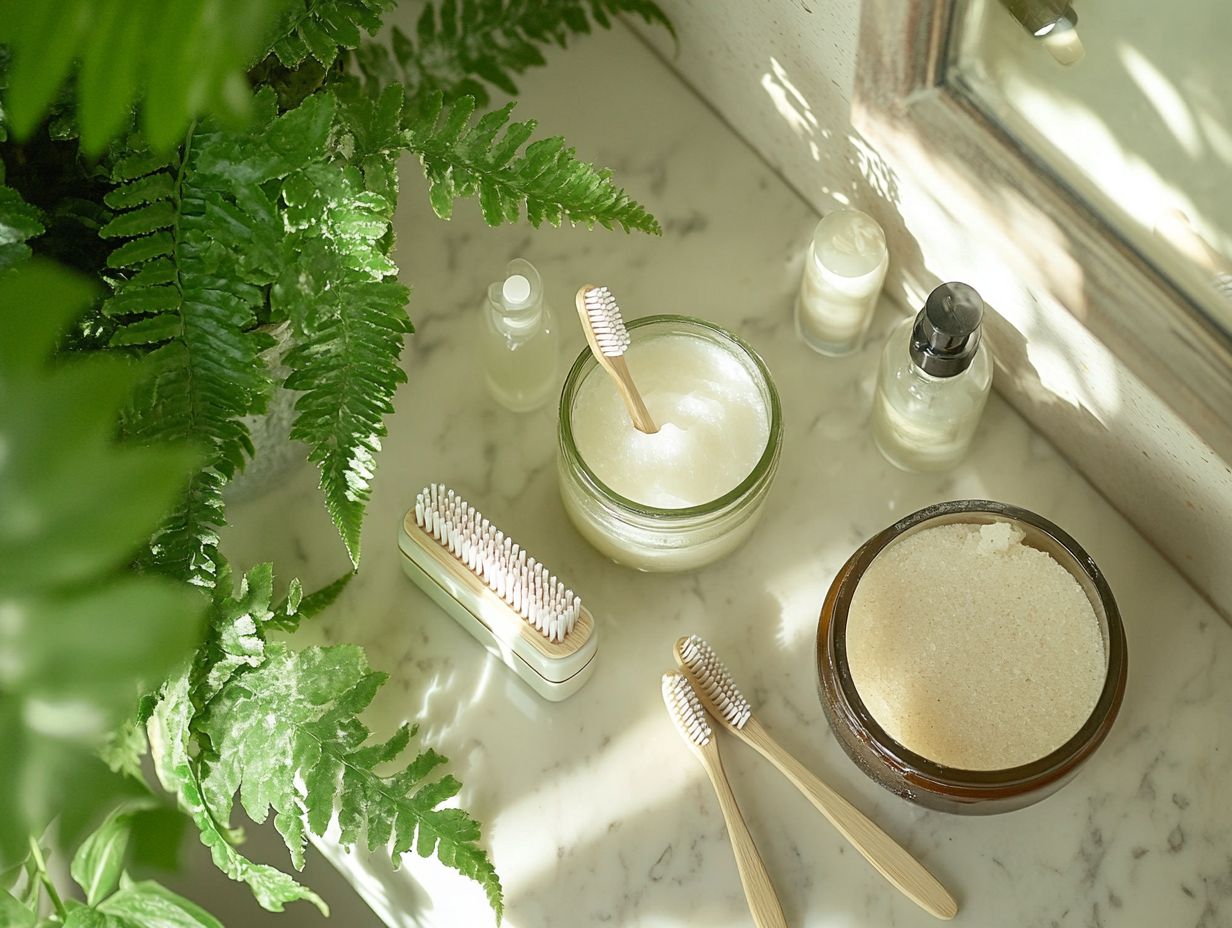
I have found that making simple swaps in my beauty routine can lead to a significant reduction in waste, especially when I incorporate DIY recipes that rely on natural ingredients. This transformation not only benefits the environment but also enhances my personal care routine with organic, chemical-free options.
For example, replacing traditional plastic bottles with stylish refillable containers has drastically reduced my plastic consumption. I enjoy exploring homemade beauty products, such as face scrubs made from oats and honey or hair masks featuring avocado and coconut oil. This approach allows me to customize my skincare regimen to suit my needs.
By adopting these eco-friendly hair care practices and utilizing natural ingredients, I can cultivate a beauty regimen that nourishes both my skin and the planet. Ultimately, this promotes sustainability while I indulge in a guilt-free self-care experience.
The Future of Zero-Waste Beauty
I believe the future of zero-waste beauty is on the brink of remarkable innovations and advancements, driven by consumers’ increasing demand for sustainable and eco-friendly options in the beauty industry.
Predictions and Innovations
I anticipate that the future of zero-waste beauty will witness a significant rise in innovative products and practices focused on sustainability and eco-friendliness.
These advancements are likely to include a range of pioneering approaches, such as formulating products with entirely biodegradable ingredients and designing packaging that is both reusable and refillable.
As the industry adopts more efficient production methods, brands are increasingly aiming to minimize waste and reduce their carbon footprints to attract environmentally conscious consumers.
Furthermore, emerging technologies are expected to improve the tracking of sustainable sourcing, ensuring greater transparency in ingredient selection. This transparency is crucial for maintaining integrity within the eco-friendly hair care market.
Collectively, these innovative developments at Rov Hair Salon in Delray Beach, Florida, featuring zero waste products, organic hair care, and eco-friendly hair treatments, including plant-based treatments and hair extensions, will not only transform consumer habits but also drive the beauty industry toward a more sustainable future with recognized product certifications.


